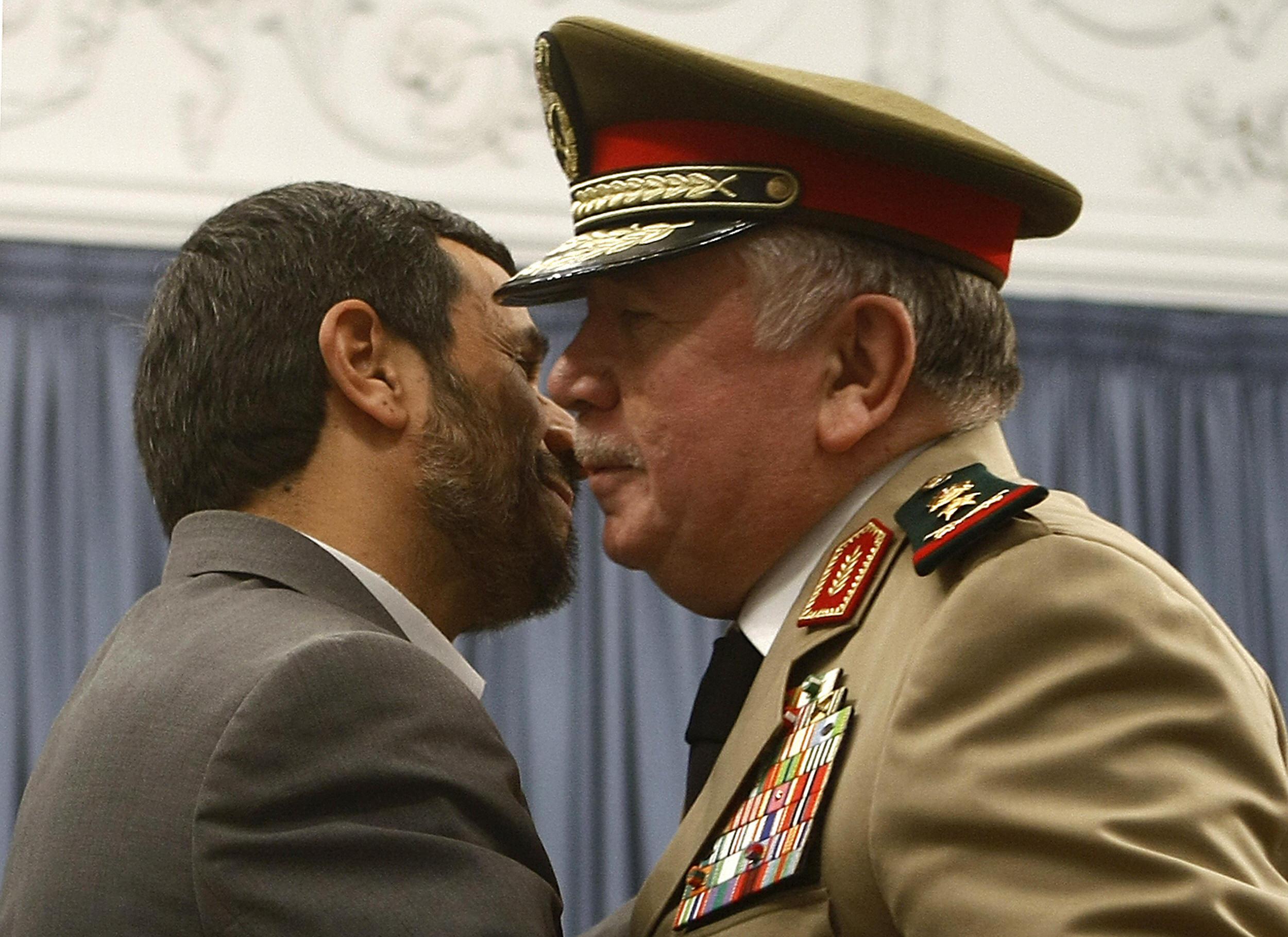Wednesday in Damascus, Syria, rebels apparently detonated a bomb inside, or next to, a top-level meeting at the regime’s national security building. The blast killed four of President Bashar al-Assad’s senior military and intelligence officials. No civilian deaths were reported. Even the windows were undamaged, suggesting that the deed was done well inside the building.
A few hours later, in Bulgaria, a suicide bomber blew himself up next to a bus full of Israel tourists, killing five of them, along with the driver, and wounding dozens more. No government or military personnel were targeted.
The bombing in Bulgaria was terrorism. The bombing in Syria wasn’t. But Russia and China think it was, and on Thursday, using that argument to tar the Syrian rebels, those two countries vetoed a resolution in the United Nations Security Council that would have sanctioned the Syrian regime to force its acceptance of a U.N. peace plan. “Terrorism” is being twisted into a synonym for insurgent violence and an excuse for authoritarian force.
U.S. law defines terrorism as violence against noncombatant targets. But in the post-2001 “war on terror,” we got carried away. Since our enemies were terrorists, we sometimes described all their attacks, too loosely, as terrorism. In December 2009, when a suicide bomber blew up CIA officers who were running a lethal drone campaign in Afghanistan, the CIA called it a “terrorist attack.”
In Syria, the U.S. has used the T-word to describe rebel operations that inflicted mass casualties, such as two car bombs that killed 44 people in Damascus last December. Russia and China have used the same language. Russia’s foreign ministry called the December explosions a “barbarian terror attack,” and China condemned them as “terrorist bombings.” In May, 55 people died, and more than 300 were wounded, in another pair of blasts. Russia’s deputy foreign minister blamed “terrorist groups,” as did China.
Wednesday’s Damascus bombing was different. The insurgents detonated their device so close to their target—the country’s military elite—that everyone known to have died was one of the bad guys. So while President Obama and Secretary of State Hillary Clinton denounced the Bulgarian tragedy as a “terrorist attack,” nobody in the U.S. government applied that word to what happened in Damascus. Defense Secretary Leon Panetta, who as CIA director in 2009 oversaw the agency’s abuse of the T-word in the Afghan incident, called the Syrian blast what it was: an “escalation in the fighting.” A State Department spokesman essentially said Assad’s henchmen got what was coming to them: “The United States does not welcome further bloodshed in Syria. We note, however, that these men were key architects of the Assad regime’s assault on the Syrian people.”
Russia and China, like Syria and Iran, acknowledged no such distinction. China’s Foreign Ministry said it “strongly condemns Wednesday’s suicide bombing in Syria and opposes all forms of terrorism and violence.” Russia’s Foreign Ministry repeated that “Moscow strongly condemns terrorism in all of its forms and manifestations. We hope that the organizers of the Damascus terrorist act will be found and punished.” Russia’s deputy foreign minister accused Syrian insurgents of “staging more terrorist acts, thwarting any attempts to solve the crisis.”
The quarrel is more than semantic. For weeks, it has been widening a rift in the Security Council. On July 6, the U.S. offered a resolution in the U.N. Human Rights Council that “strongly deplores … the indiscriminate targeting of civilians by the Syrian authorities” and “condemns in particular the targeted killing of children.” Russia insisted on an amendment that would condemn “acts of terrorism” by Syria’s “armed opposition.” When the U.S. and its allies rejected the amendment, Russia and China voted against the resolution.
On Thursday, that rift came to a head in the Security Council. Russia and China used their vetoes to block any threat of consequences against Assad. Russia’s U.N. ambassador (shown in this video, at minute 40) said it was unacceptable to aim the sanctions “exclusively at the government of Syria … in light of what took place yesterday in Damascus. I’m referring to the grave terrorist attack.” China’s ambassador (shown at minute 1:12) echoed this complaint: “We oppose terrorism and violence in all their forms and strongly condemn the recent killing of civilians and the bomb attack in Damascus.”
Iran, which stands accused by Israel and the U.S. of sponsoring and instigating the Bulgaria massacre (Iran denies it), charges the U.S. and other Western countries with hypocrisy on this subject. According to Iranian news agencies, the speaker of Iran’s parliament complains that “those countries which are so-called advocates of anti-terrorism did not condemn the terrorist attacks in Syria.” By failing to do so, he concludes, “the Americans show that they believe in good assassinations and bad assassinations.”
Yes, Sir. We do. A bad assassination is one in which you kill a bunch of innocents while targeting enemy soldiers or their leaders. A good assassination is one in which you get the bad guys and spare the noncombatants. But what happened in Bulgaria isn’t assassination at all. It’s pure murder of civilians—not even in their own country—simply because, according to U.S. intelligence, they shared citizenship with a government you oppose.
Terrorism isn’t about blowing things up. It’s about whom you target and whom you kill. It’s one thing to attack the Pentagon. It’s another thing to do it with a plane full of 59 people. And it’s yet another thing to target thousands of civilians in office buildings. The problem today isn’t just Iran, Syria, and other state sponsors of terrorism who refuse to see the difference between blowing up a tourist bus and blowing up a meeting of military brass. It’s Russia, China, and other authoritarian regimes who have found, in this linguistic perversion of “terrorism,” an all-purpose excuse for crushing dissent.
